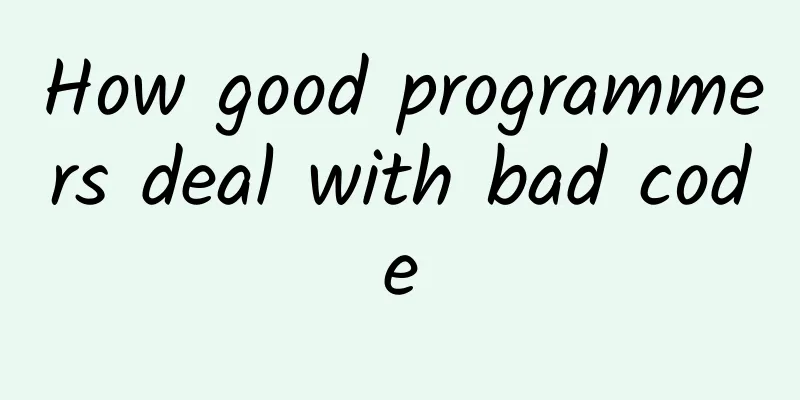How good programmers deal with bad code

|
Maybe you've never written a bad line of code. It's possible, but unlikely in reality. The reality is that, like every other programmer on the planet, you will produce code that has security holes, UI elements that move around, etc. This doesn't make you a bad developer. It's just that you're human - a creature that is bound to make mistakes. It is this "human nature" flaw that every developer has that drives the best developers to take responsibility for the shortcomings of the code and the underlying infrastructure and act with preparation and planning. Here is what they will do.
Assumptions A few years ago, Netflix open-sourced Chaos Monkey and the rest of the Simian Army, a suite of tools for managing cloud-based software. Essentially, Chaos Monkey ranges across Amazon Web Services infrastructure, terminating instances at will. It's basically a way to prepare for the worst by creating the worst possible scenario. As Netflix's Cory Bennett and Ariel Tseitlin wrote in a blog post at the time of the release, "Code will fail, and the less you expect it to fail or the less prepared you are, the more likely it will fail. If your application cannot tolerate instance failures, would you rather be called in at 3 a.m. or stay in the office all night?" By simulating failures in unpredictable ways, Netflix forces us to focus on the resilience of our infrastructure. Rather than assuming the worst, we can prepare for the worst. That way we can happily move on to the next process. test Above we talked about a great way to improve infrastructure, but what about code? Jeff Atwood, a programmer, has the answer: "You need to tweak your code." He writes:
In practice, this means that "programmers need to have at least some understanding of common errors, however, many programmers often do not do so, or even do the opposite." This means that your responsibility as the "God of Programming" also includes becoming the "God of Testing", actively eliminating errors in the code by "tormenting" it. Andre Medeiros added that we should be "getting better" at debugging because developers need to do more with their code. “To prevent bugs, you need to write code that is simple for any programmer to understand. To fix bugs, you need to understand your code. To understand your code in detail, you need to enumerate and verify your assumptions, and if necessary, build debugging tools.” Skyscrapers above slums Of course, one of the biggest problems with our code is that it inherits from so much other code. Especially in established enterprises, we often build on top of old code, which leads to all kinds of downstream problems. Here is a great description from Zeynep Tufekci:
It was clear that there was nothing we could do to improve the situation unless we worked on removing the technical debt. But maybe, just maybe, in the process of willingly tinkering with your code, you’ll discover how important it is to eliminate technical debt. |
<<: Talking about iOS large-scale project development
>>: After failure in India, Google's Android One is set to fail in Africa
Recommend
What is the content of online promotion work and what are the specific responsibilities of promotion work?
With the continuous development of the Internet, ...
Cable Network's Lost Decade
In the past 20 years, cable networks have focused...
When others are following the marketing trend, what else can you think about?
The time period when I wrote this article was both...
What types of ads should you pay attention to when promoting Baidu Union?
Baidu Union Promotion is one of the core products...
One article to understand Toutiao advertising placement
" Toutiao " is a personalized recommend...
Zero-based video account to make money, 0 cost, 0 threshold, easy daily income of 300+ [Video Tutorial]
Zero-based video account to make money project, 0...
The current situation of iOS buying volume market and advertising matters!
As we all know, Android has a large number of use...
Tik Tok Android Image Optimization Practice
Background Why does Tik Tok need to continuously ...
up to date! Data rankings of 60 information flow advertising platforms!
Today I bring you the latest traffic rankings of ...
How much does it cost to customize a supplement mini program in Jining?
The launch of mini programs has brought convenien...
How to price your product? Here are 4 ways
Price is an important means of competition. Prici...
The latest chapters of The School Belle’s Personal Bodyguard are free to read, and the chapters of The School Belle’s Personal Bodyguard are updated!
A peerless master who came out of the mountains, ...
Complete a landing page design in 7 steps!
User decision-making is an uphill process. The va...
Dapeng Education-PS Comprehensive Case Improvement Class
Dapeng Education-PS Comprehensive Case Improvemen...









![[Collection] 45 essential tools for bidding promotion to help you master search marketing!](/upload/images/67cc23c9adf3a.webp)